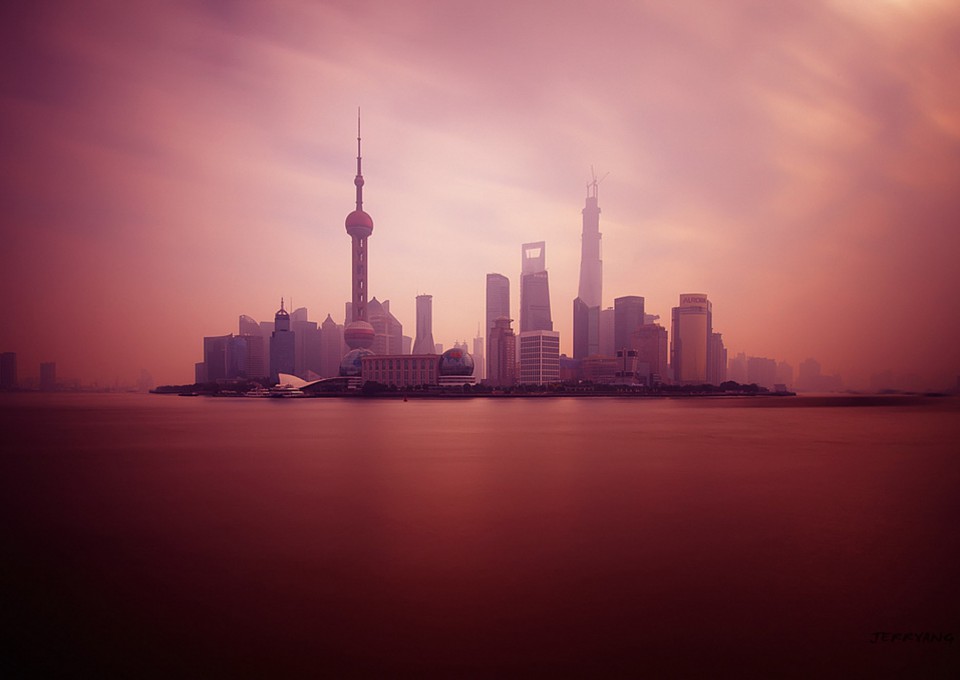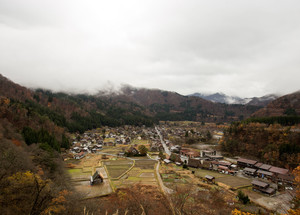I’ve spent most of my 30s living in China. As someone who grew up in the United States, this means that I’ve spent most of my 30s living in a place where I couldn’t really speak or read the local language, and where I stand out in nearly every professional or social situation as being the different one.
Life here, lived as an outsider, has made me think a lot––about how we communicate, how we live together, about the nature of all of humankind.
I often get asked by people from back home:
So, do you live in Tokyo?
No, that’s Japan.
Do they speak Cantonese or Mandarin where you are?
Pretty much everyone speaks Mandarin (there’s just a specific place in the South that speaks Cantonese).
Are people allowed to choose what city they live in?
Yes. There was a time, several decades ago, during the Cultural Revolution, where a lot of people were dispatched to work in specific areas, but now people are as free to move around as they like (notable exceptions like Tibet notwithstanding).
Is it against the law to be Christian?
You can get in trouble if you’re political about it, but there are lots of Christians and Christian churches here.
Do people all think the same?
There’s a billion plus human beings. You tell me.
I could go on.
In fairness, I would have asked a lot of these questions myself before I moved here. But as soon as I’d spent even a little time here, these questions, and the assumptions they reveal, became telling; evidence of a disconnect in people’s understanding of one another.
This same disconnect can be felt in the questions people in China ask us American expats:
Is it dangerous?
Does everyone have a gun?
Are people all rich there?
Does everyone like to eat steak?
Are there many Chinese people in the US?
What’s the weather like?
And again, I could go on.
I get told from time to time that I don’t look “American”, because I’m skinny and on the shorter side, and Americans are all tall and fat. I never know what to say to that one, so I just smile.
For both Americans and Chinese, the ‘other’ world is shrouded in mystery. Indeed, I’ve heard Americans say that Chinese society is so different from our own that Westerners can’t even really understand it.
Which is, of course, untrue.
Just look at the way we view each other, and the way we use these stereotypes to glorify our own cultures: we’re up to the exact same thing.
In the United States, nationalism frames a lot of our thinking about ourselves and others. It’s like a religion that we get initiated into, starting around first grade and continuing until we graduate high school, fully programmed with all the reasons why the United States is unique in the history of humankind, and why being an American is so special.
Some people see through this, of course, but many don’t. In my case, the feeling persisted until one very specific moment a few years ago. I was sitting with a group of expats in Beijing when I realized, quite suddenly, that no one else thought of me as special in the least for being American, just as they didn’t think of themselves as special or ‘exotic’ or anything else by virtue of growing up in Estonia or Scotland or France.
In that moment, it became crystal clear to me that I had been conditioned my whole life to see other human beings through that lens. Being American represented a sort of baseline of normality, and any other “kind” of human could be defined as a degree of deviation from that norm. Canadians? Pretty much like normal people, but friendlier and sort of quaint. Mexicans? Tough to say, there’s a lot of them in the United States, but they talk funny and watch different TV shows. But what about Uzbekistanis? Mongolians? Iranians? As Americans, we’re conditioned to think of people from such places as different to the point of being unknowable. Interesting, perhaps, but not really human in the way that good old fashioned “real Americans” are.
In China, there’s some ambiguity between China the nation state and the dominant Han ethnic group, but ultimately the pattern is very similar: Han Chinese people are ‘real’ people, and non-Chinese are not. No one would put it so plainly, of course, but living here, this feels like the consensus of the collective psyche. Japanese and Koreans get grandfathered in, like Canadians are in America, but anyone else is very much an ‘other’––and to the Han sensibility, not fully human.
There’s a pretty common experience among Non-East Asian expats in China which delivers this lesson pretty quickly. Walking down the street, a small child sees you and gasps, and then pulls on their parent’s pant leg with one hand, pointing with the other, while saying ‘foreigner’, loudly, in Chinese. It’s usually pretty cute, and the parents are usually polite and apologetic if you make eye contact, but there’s something in the way the kids regard me that I’ve also noticed in older Chinese people, too––a feeling of being, first and foremost, a curiosity and a mystery.
I get why people in China feel the way they do about these funny looking foreigners. I felt the same way, growing up in Spokane, Washington, when a Korean adoptee moved in down the road from us. My siblings and I were fascinated. But having lived in Western and Asian societies, and having gotten to know real flesh and blood human beings in both places, this ingrained feeling of difference now feels bizarre. The more I’ve thought about it, the more all the distinctions we use for other human beings –– ‘Chinese people’, ‘black people’, ‘poor people’ –– feel absurd, a barrier to feeling our essential sameness as human beings.
Living in China for seven years, it’s this sameness I feel now, much more than any differences. As cliched and ordinary as it might sound, it’s given me a deep feeling that people really are just people; at the level of our feeling selves, we are really all the same.
Before I made the decision to move to China at 32, I came in my 20s as an English teacher, wanting to experience something different.
I went to work at a hybrid private-public university in a city I’d never heard of, mid-sized by Chinese standards, but comparable to the biggest cities back home in terms of population and activity. On one side of the campus then was a modern, hi-tech city, but on the other side was rural China, and conditions unlike anything you would see growing up in the United States: farms worked by hand, goats everywhere, and homes that seemed like rustic mountain cabins. Walking from one edge of the campus to the other, it was like you could move between worlds.
I was one of about 100 English teachers, most of us young and curious about this new place we’d all ended up in. In the first few weeks of orientation and settling in we were like tourists in our new home––setting out exploring in little pods, trying one exotic new experience or another, returning to the dinner tables in the foreign teachers’ hall in the evenings to recount the day’s adventures. I soon noticed a pattern in our conversations, and in my own thinking, about our explorations in this new land. Our stories differed in their details, but they all carried the same feeling: these people around us were very definitely Chinese, and this fact, this defining otherness, was essential to understanding these stories we told each other, and ourselves.
I’d like to say a cultural awareness quickly developed in me, that I soon became a truly colorblind man of the world, but really all that happened was that I became aware of that pattern in my own thinking; it became something I recognised not just in myself, but in others I related to, and, in a broader sense, in the media and in our cultural narratives about other places.
It made me think, too, about how I had always regarded people of different ethnicities.
It made me think back to that time in college, when I thought I was being so wise and bold when I asked a black friend what it was like to be black. Or how, on a trip to Cuba once, I hung out with some young Cubans for a day, and how I very consciously saw them as almost like exhibits in a museum; how, as I was hanging out with them, I was already writing in my head the story I would tell about the time I’d spent with ‘The Cubans’.
This realisation wasn’t a pleasant one, but it was important. It’s clarifying on a lot of levels to be able to see human beings as simply human beings, to be free of the barriers we can build out of ethnicity and nationality between ourselves and anyone not just like us.
I know I am not completely ‘colorblind’ yet, and I do notice the feeling of difference come up in my thinking all the time. Now, though, I’m aware of it when it happens and I’m often able to disregard it. It feels like taking a rock out of my shoe.
Now that I’m more attuned to this sense of difference, I see it everywhere in our cultural narratives––in the nightly news, the school curricula, in the nature of the questions people ask, a chasm of confusion entirely of our own making. Seeing it in these places and not being able to will it away is frustrating, but I also know it’s not insurmountable: even a subtle but tangible correction in our thinking could do so much.
We don’t need to become experts in all the different societies of humankind. We just need to recognize and feel that no matter how different or ‘exotic’ another culture seems –– be it an uncontacted tribe in the Amazon, or an impoverished black community in the United States –– at heart, the people there are flesh and blood humans who feel and emote exactly like anyone you have ever known. Like you. And that no more than any of us decided to wake up and be the ethnicity we are, or from the community we’ve grown up in, neither did anyone else. They were just born, and are just here, and have the same feelings of hunger and thirst and boredom and excitement and all the rest that you and everyone you know feels every day.
If my time in China has taught me anything, it’s that we are holding ourselves back in a way that is completely unnecessary. We need to change the way see each other, allowing unity of heart and feeling to replace old assumptions. This change alone is not the solution to global warming, or to war, or racism, but it’s a start: if we are really going to cooperate on what matters, we first must look at one another through a new lens.




